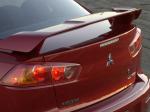Driving Tips
Ways to improve your
driving
Cornering

Skidding can occur when a motorist approaches a
corner without due care for safety.
1. Do not apply the brake when you are
negotiating a corner, especially when you are travelling at a reasonably high speed.
2. It is advisable to keep to the left while cornering to avoid head on collision with an on coming
vehicle which may have veered across to your side of the road while cornering.
3. Take the following safety measures:
* Position you vehicle correctly on the approach side.
* Slow down to an appropriate speed before cornering.
* Use correct gear.
* Maintain constant speed while negotiating the curve.
4. In the event you notice sand or an oil patch on the bend, do not apply brakes; hold your steering
wheel firmly and proceed calmly by maintaining your speed.
Making a Left Turn
1. Maintain lane discipline before
turning. Look out for road signs or markings on the road.
2. Signal your intentions early. mirrors should be checked before changing lanes.
3. You have to turn your head and look over your shoulder to the left to check for traffic in "blind
spot". Do not keep too close to cyclists.
4. Engage a low gear before turning. When changing from higher to lower gear, slightly brake before
changing gears.
5. Positioning your vehicle correctly on the approach side.
6. Look left and right for approaching vehicles before turning. If there is a "STOP" sign, stop before
the "STOP" line.
7. Keep a lookout for pedestrians crossing the road and make your turn only when it is safe to do
so.
8. After making a turn on a road with no obstruction ahead of you, you should speed up
immediately.
Making Right Turn

1. Maintain lane discipline. Look out
for road signs or road markings on the road.
2. Signal your intention early. Get into the right lane well in advance before turning.
3. Mirrors should be checked before changing lanes.
4. You have to turn your head and look over your shoulder to the right to check for traffic in "blind
spot".
5. Before you reach a junction, enter the correct lane for whichever direction you wish to take.
6. Always engage a low gear before turning.
7. Position your vehicle correctly on the appropriate lane.
8. At the junction, slow down and stop when necessary.
9. Always check for vehicles before turning. Look first to your right, then to the left and right
again. Give way to traffic on the major road. At the same time, look around for pedestrians crossing the road. Turn
only when it is safe to do so.
10. After making a turn on the road with no obstructions ahead, you should speed up immediately and move
back to left lane again.
Making a U-Turn
1. There must be a U-Turn sign before
you can make a U-turn.
2. Signal your intentions early, mirrors should be checked before changing lanes.
3. You have to turn your head and look over your shoulders to the right to check for traffic in "blind
spot".
4. Enter the correct lane for whichever direction you wish to take.
5. Slow down before approaching the U-Turn. Engage the correct gear.
6. Position your vehicle correctly.
7. Look out for vehicles before turning.
8. If the divider is wide, turn into the innermost lane. If the divider is narrow, turn into the
middle lane.
Parallel Parking
1. Signal your intention, stop vehicle
about 0.8meter from the curb.
2. Ensure safety on the right, front and rear.
Vertical Parking
1. Signal your intention, stop vehicle
about 1.7meter from the curb.
2. Ensure safety on the right, front and rear.
Mirrors and Signals

1. Mirrors and signals should be
checked before moving off, slowing down, stopping, changing lane, overtaking and making any turn. Watch out for
other drivers signals and act on them promptly.
Blind Spots
1. The areas on the right and left of
your vehicle which cannot be viewed in mirrors are known as the "blind spots".
2. You have to turn your head and look over your shoulder to the left or right to check for traffic in
the "blind spots" before changing lane, overtaking, turning, stopping and moving off.
3. Never drive in someone else's blind spot. Always keep your eyes moving and don't fix on one thing
for too long.
Shifting the Gear (Auto
Car )
Tips on gear shifting for auto cars. |



